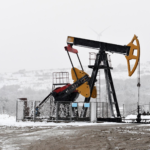Activists are alarmed by Emirati corporations’ dismal record on labor rights and fear that projects may fail to meet environmental problems.
The United Arab Emirates has become Africa‘s greatest sponsor of new business initiatives, prompting hopes of a flood of much-needed funds for green energy. However, concerns are also raised that the investments may jeopardize workers’ rights and environmental protections.
Between 2019 and 2023, Emirati companies announced $110 billion (£88 billion) in projects, $72 billion of which were in renewable energy, according to FT Locations, a data company owned by the Financial Times.
The pledges were more than double the value of firms in the United Kingdom, France, and China, which withdrew from large-scale infrastructure investment projects in Africa after they failed to achieve projected profits. African leaders were likewise frustrated by Western governments’ climate finance pledges. At the Cop29 climate conference, for example, affluent countries pledged $300 billion yearly, while developing countries sought $1.3 trillion.
Although African leaders have welcomed the Emiratis’ increased interest, some activists and analysts are concerned that the UAE’s poor record on migrant labor rights, continued support for hydrocarbons, and failure to address environmental issues will characterize its African investments.
Ahmed Aboudouh, an associate fellow at the Chatham House think tank, said, “African countries are in dire need of this money [for] their own energy transitions. And they plug huge holes, the Emirati investors, that the west failed to.” “But at the same time they come in with less attention to labour rights, to environmental standards.”
The UAE has long been a political actor in North Africa and the Horn of Africa, where it has been accused of inciting violence in Libya and Sudan. Now, its leadership is attempting to diversify its economy away from oil and gas, including green energy and “critical minerals” like copper, which are required for electric vehicles and batteries.
Dubai’s port and airline companies were early movers into Africa. Emirates Airlines, based in Dubai, operates flights to 20 African nations. DP World, which Dubai’s royal family manages, has been operating in the region since 2006. It administers six ports and aims to create two more. Abu Dhabi Ports has been managing Guinea’s Kamsar port since 2013, and it has recently secured concessions in Egypt, the Republic of Congo, and Angola.
Maddalena Procopio, a senior policy fellow at the European Council on Foreign Relations, said, “Angola is, at the moment, the only country where both DP World and Abu Dhabi Ports have a presence.” She said the UAE was not shifting away from East Africa. “This has to do with a growing interest from the UAE in expanding connectivity towards the Americas, in particular Latin America.”
UAE corporations have also made investments in agriculture and telecommunication. Since 2022, Dubai’s royal Sheikh Ahmed Dalmook al-Maktoum has signed deals to sell carbon credits from forests covering one-fifth of Zimbabwe, 10% of Liberia, 10% of Zambia, and 8% of Tanzania.
Emirati investments have also disrupted the mining business. International Resource Holdings, a subsidiary of a firm owned by Abu Dhabi national security adviser Sheikh Tahnoon bin Zayed, paid $1.1 billion to Zambia’s state mining company, ZCCM, for a 51% share in Mopani Copper Mine.
Most onlookers were surprised by the arrangement. ZCCM acquired the debt-laden mine from Glencore in 2021 and has been looking for a new investor. Throughout 2023, the shortlist was generally reported to be reduced to two companies: China’s Zijin Mining and South Africa’s Sibanye Stillwater.
That is until IRH was announced as the favored bidder. Sheikh Tahnoon’s firm, widely regarded as the second most powerful Emirati behind Abu Dhabi’s ruler, Sheikh Mohammed bin Zayed Al Nahyan, has no track record. However, Zambian officials and consultants said IRH had employed world-class mining experts and that its commitment to investing in the mine while safeguarding jobs made it the best option.
Many Emirati announcements may never materialize or are in the early stages. For example, the 2023 announcement of a $34 billion “green hydrogen” project in Mauritania was a Memorandum of Understanding rather than a formal contract.
Some promises have encountered obstacles. Masdar, a renewable energy business, stated in January 2023 that it would invest $2 billion in 2GW of solar electricity in Zambia. However, financial issues at ZESCO, Zambia’s state-owned energy business, have slowed the investments, according to Jito Kayumba, a special adviser to the president.
Ken Opalo, an associate professor at Georgetown University, said: “African countries need all the financing and trade they can get.” “However, there is also the opportunity for the attention to breed criminality—like we are seeing in the gold sector.”














